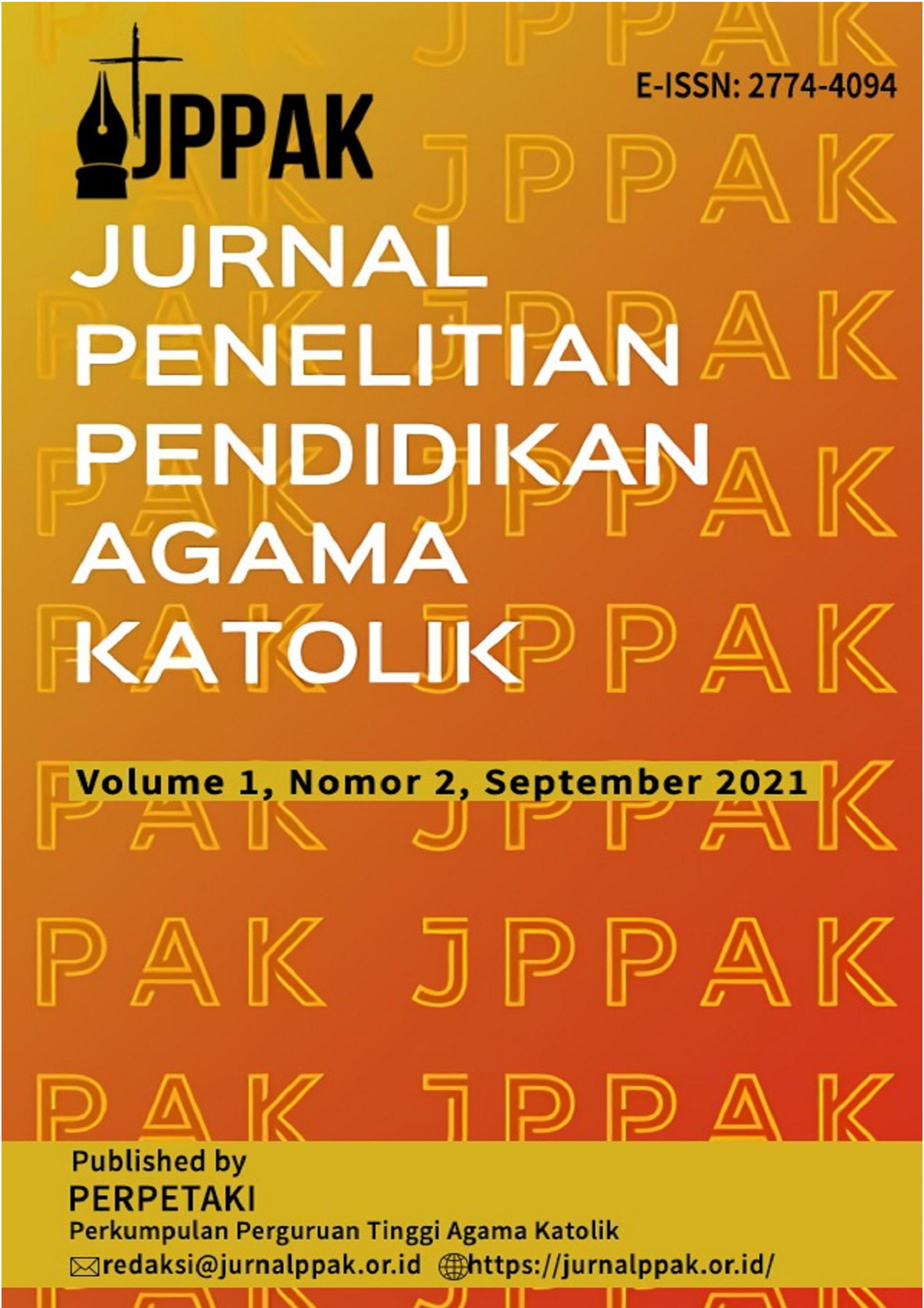The Concept of Ecological Theology in the Ritual of Ngeti Uma in the Ende-Lio Society
DOI:
https://doi.org/10.52110/jppak.v2i2.62Keywords:
Ecological theology, Catholic church, Ende-Lio community, Ngeti Uma RitualAbstract
The environmental crisis is one of the problems which is always related to human life. Meanwhile, there are various cultural traditions that teach love, respect, and harmony with nature and the environment. Morever, these traditions often convey the Creator as the provider and the giver of the harmony. They believe that the environmental crises might have been caused by the fading understanding of God as the creator and preserver of the universe. This belief in fact is the principle of Ngeti Uma ritual. This paper aims to find the true concept of God and His relationship with creations in the Ngeti Uma Ritual of the Ende-Lio community. The research for this paper uses a qualitative approach with ethnographic methods. Data were obtained through interviews with key informants. The research find out in the ritual there is indeed a concept of belief in God and His relationship with the creations. God is called Du'a Nngga'e. This concept has its similarities with the teaching of the Catholic Church. God is seen as the creator, organizer, as well as the giver of the fertility of soil and the growth of nature.
Downloads
##submission.downloads##
Submitted
Accepted
Published
How to Cite
Issue
Section
License
Copyright (c) 2022 Alfredo Reynold Reba, Sefrianus Juhani, Aprilius Bedu Beke, Bruno Rhaki Mbani, Edwinandus Dhajo Reda, Fransiskus B. Bop Dala, Karolus Dule

This work is licensed under a Creative Commons Attribution-ShareAlike 4.0 International License.
Copyright Notice and Permissions
Jurnal Penelitian Pendidikan Agama Katolik offers immediate open access to all its content on the principle to make researches freely available to the public, especially to the scholars, to support greater global exchanges of knowledge. This journal encourages all scholarly authors to allow their research openly available, free access and without time restrictions.
All articles published Open Access will be immediately and permanently free for everyone to read and download. Under the CC BY-SA 4.0 license, authors retain ownership of the copyright for their article, however authors grant others permission to use the content of publications in Jurnal Penelitian Pendidikan Agama Katolik (JPPAK) in whole or in part provided that the original work is properly cited. Users (redistributors) of Jurnal Penelitian Pendidikan Agama Katolik (JPPAK) are required to cite the original source by including at least: the full title of the article, the author's or authors' full name(s), JPPAK as the initial source of publication, year of publication and volume number using a propriate citing method.
Copyright encompasses exclusive rights to reproduce and deliver the article in all form and media, including reprints, photographs, microfilms and any other similar reproductions, as well as translations. The reproduction of any part of this journal, its storage in databases and its transmission by any form or media, such as electronic, electrostatic and mechanical copies, photocopies, recordings, magnetic media is prohibited without consent of Jurnal Penelitian Pendidikan Agama Katolik (JPPAK).
Jurnal Penelitian Pendidikan Agama Katolik (JPPAK) is licensed under a Creative Commons Attribution Share-Alike 4.0 International. (CC BY-SA 4.0)
Authors who publish with Jurnal Penelitian Pendidikan Agama Katolik (JPPAK) agree to the following terms:
- Authors retain copyright and grant the journal right of first publication with the work simultaneously licensed under a Creative Commons Attribution Share-Alike 4.0 International (CC BY-SA 4.0) license that allows others to share the work with an acknowledgement of the work's authorship and initial publication in this journal.
- Authors are able to enter into separate, additional contractual arrangements for the non-exclusive distribution of the journal's published version of the work (e.g., post it to an institutional repository or publish it in a book), with an acknowledgement of its initial publication in this journal.
- Authors are permitted and encouraged to post their work online (e.g., in institutional repositories or on their website) after the publication on JPPAK, as long as it not published on other OJS for it will be treated as plagiarism by plagiarism checker apps. It can lead to productive exchanges, as well as earlier and greater citation of published work (See The Effect of Open Access).












